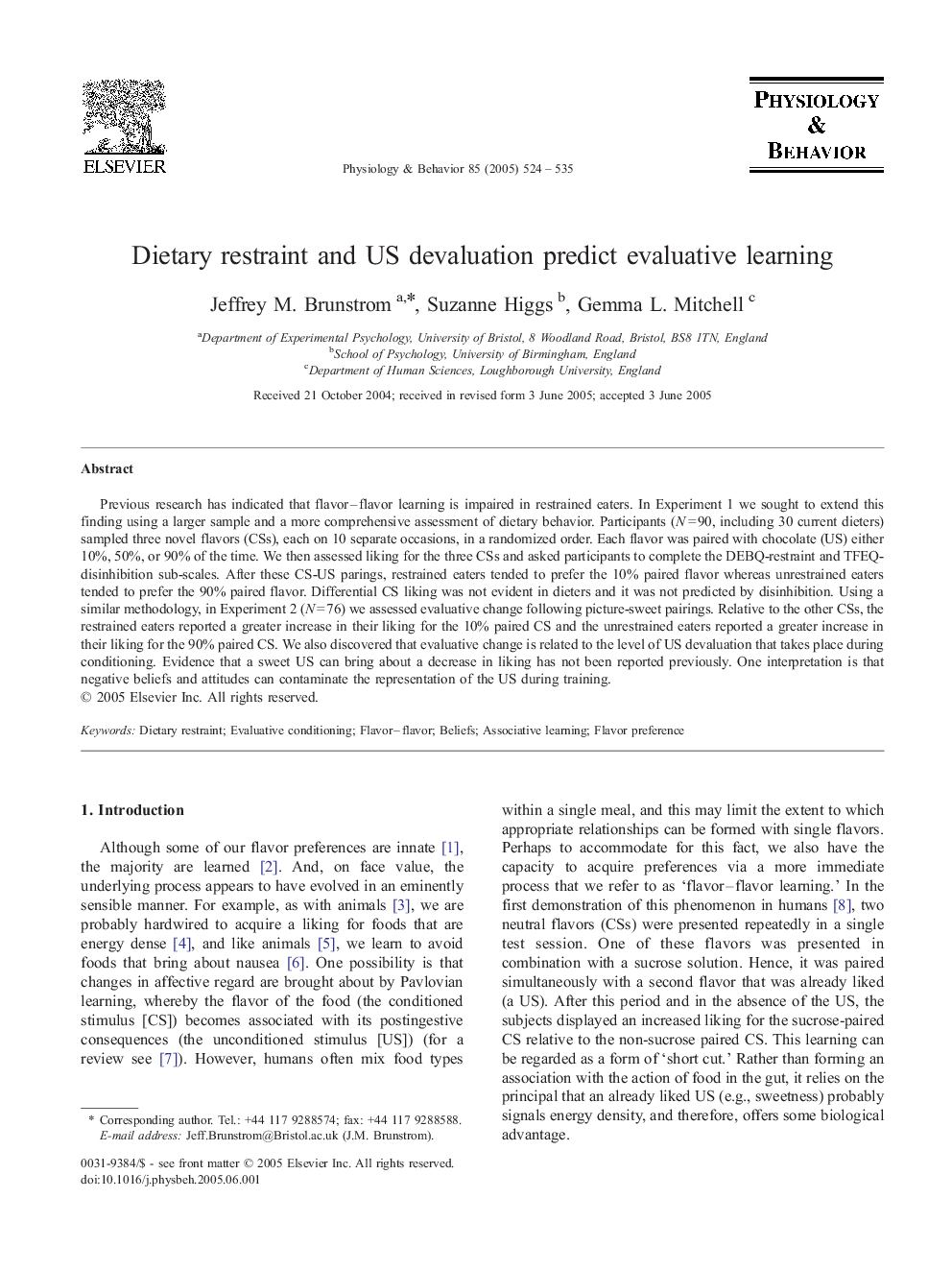| کد مقاله | کد نشریه | سال انتشار | مقاله انگلیسی | نسخه تمام متن |
|---|---|---|---|---|
| 9149641 | 1166431 | 2005 | 12 صفحه PDF | دانلود رایگان |
عنوان انگلیسی مقاله ISI
Dietary restraint and US devaluation predict evaluative learning
دانلود مقاله + سفارش ترجمه
دانلود مقاله ISI انگلیسی
رایگان برای ایرانیان
کلمات کلیدی
موضوعات مرتبط
علوم زیستی و بیوفناوری
بیوشیمی، ژنتیک و زیست شناسی مولکولی
فیزیولوژی
پیش نمایش صفحه اول مقاله

چکیده انگلیسی
Previous research has indicated that flavor-flavor learning is impaired in restrained eaters. In Experiment 1 we sought to extend this finding using a larger sample and a more comprehensive assessment of dietary behavior. Participants (NÂ =Â 90, including 30 current dieters) sampled three novel flavors (CSs), each on 10 separate occasions, in a randomized order. Each flavor was paired with chocolate (US) either 10%, 50%, or 90% of the time. We then assessed liking for the three CSs and asked participants to complete the DEBQ-restraint and TFEQ-disinhibition sub-scales. After these CS-US parings, restrained eaters tended to prefer the 10% paired flavor whereas unrestrained eaters tended to prefer the 90% paired flavor. Differential CS liking was not evident in dieters and it was not predicted by disinhibition. Using a similar methodology, in Experiment 2 (NÂ =Â 76) we assessed evaluative change following picture-sweet pairings. Relative to the other CSs, the restrained eaters reported a greater increase in their liking for the 10% paired CS and the unrestrained eaters reported a greater increase in their liking for the 90% paired CS. We also discovered that evaluative change is related to the level of US devaluation that takes place during conditioning. Evidence that a sweet US can bring about a decrease in liking has not been reported previously. One interpretation is that negative beliefs and attitudes can contaminate the representation of the US during training.
ناشر
Database: Elsevier - ScienceDirect (ساینس دایرکت)
Journal: Physiology & Behavior - Volume 85, Issue 5, 7 August 2005, Pages 524-535
Journal: Physiology & Behavior - Volume 85, Issue 5, 7 August 2005, Pages 524-535
نویسندگان
Jeffrey M. Brunstrom, Suzanne Higgs, Gemma L. Mitchell,